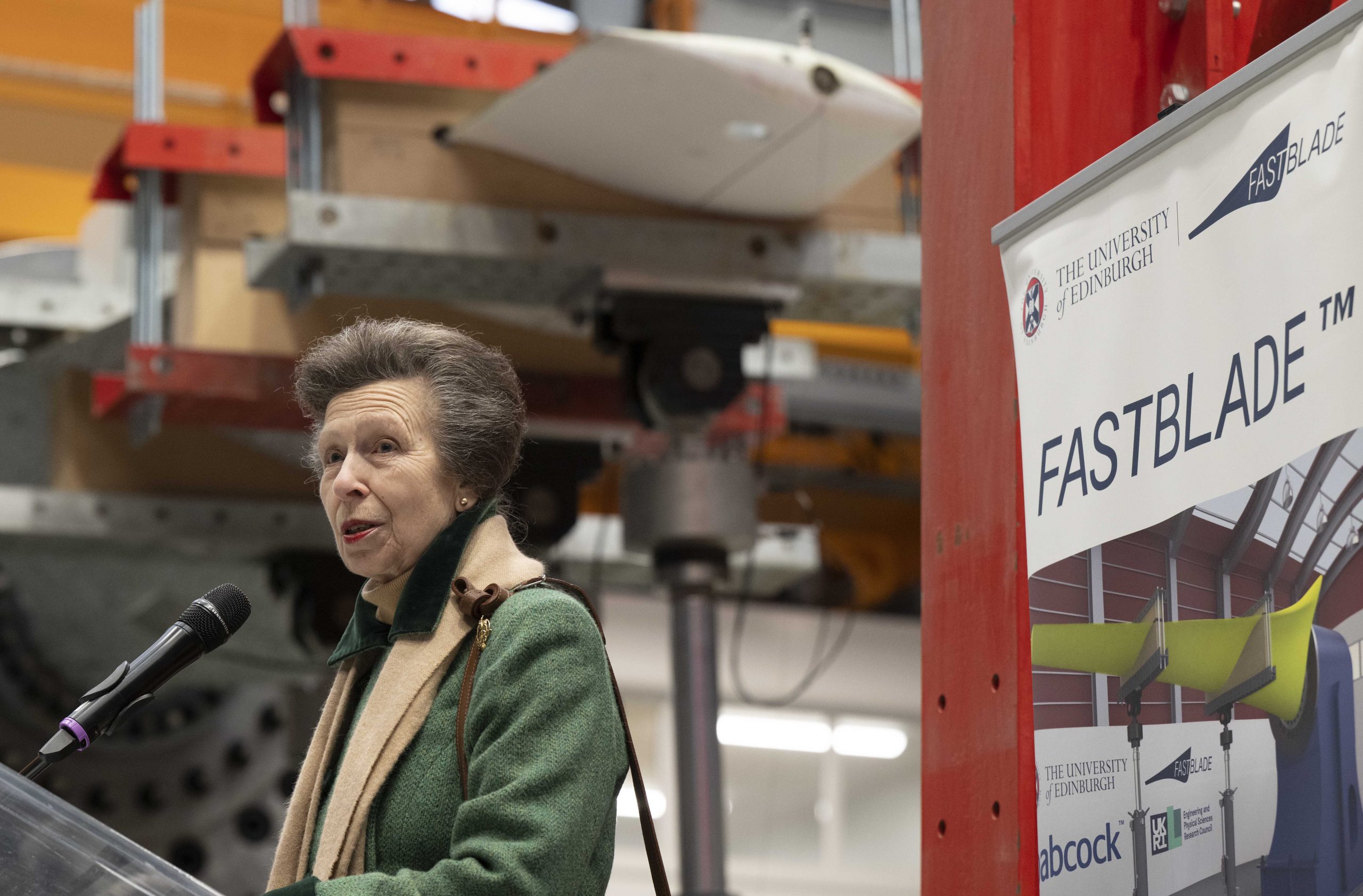The Princess Royal was on hand yesterday to witness Edinburgh University’s technologists launch the next spin cycle in sharpening turbine technology off Scotland’s shores.
Prince Harry’s aunt and chancellor of the university met partners and colleagues in the €10 million joint UK-EU-funded MAXblade programme, to be tested on the uni’s FastBlade rigs.
MAXblade aims to improve the performance of tidal turbines and reduce cost in materials, manufacture and operation, as well as easing their decommissioning and recyclability.
The initiative’s goal is to secure Europe’s leadership in the manufacture of blades for tidal turbines. Edinburgh University’s Institute of Energy Systems estimates £40bn could be generated for Britain’s economy by harnessing wave and tidal energy.
Longer, stronger, more resilient rotors, stretched in Scotland to a world-beating 13 metres, could see their power output boosted by as much as 70 per cent. Impellers spun by pioneers Orbital Marine Power at their research base close to Orkney stand to benefit from tumbling upfront unit costs, as they strive to deliver wave after wave of marine electricity.
MAXblade encompasses a two-year design and development phase, followed by an 18-month build out, during which blades will undergo advanced structural testing in onshore labs.
The technology will then undergo two years of salt-water testing at the European Marine Energy Centre (EMEC) in Orkney.
Two of Orbital Marine Power’s O2 floating platforms – at 2MW, the world’s most powerful tidal turbines – will each be fitted with four of the newly developed blades.
The team aims to generate 120,000 hours of performance data. It will be assessed by EMEC and project partner TECNALIA, a research and technological development centre.
Orbital Marine Power’s boss Andrew Scott said: “Orbital is delighted to be involved with so many great partners on this truly cutting-edge project.
“MAXBlade will help deliver tidal energy into a future, low-carbon energy mix at lower costs. At the same time it positions UK & European businesses to benefit from long-term industrial opportunities arising from this new, sustainable industry.”
The university’s Professor of Materials Engineering Conchúr Ó Brádaigh said: “We’re delighted to be in the MAXBlade project, where we will demonstrate the unique rapid testing capability of the FastBlade facility.
This will help the tidal energy industry to de-risk their ongoing turbine developments and provide low-cost, reliable renewable energy to the grid. We will also lead the development of thermoplastic resins in MAXBlade and the circular economy roadmap needed for future tidal blade manufacturing and recycling.”
Picture credited to Neil Hanna.




